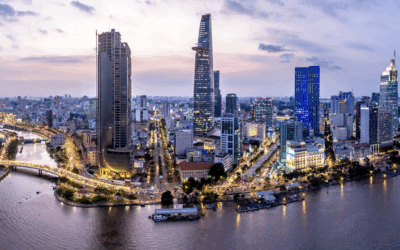The world’s wealthiest individuals don’t simply stash their fortunes in a savings account and hope for the best.
Instead, they employ sophisticated financial strategies to preserve and grow their wealth while minimizing risk.
From diversified investment portfolios to private banking and offshore accounts, the rich leverage a variety of financial tools to ensure their money works for them.
Below, we’ll explore where the wealthy keep their money, how they structure investments, and the financial instruments they use to maintain and expand fortunes.
The Myth of Cash Hoarding
Contrary to popular belief, the ultra-rich do not keep vast sums of money sitting in a bank account. Holding large amounts of cash is inefficient because inflation erodes its value over time.
Instead, the wealthy allocate their assets across various investment vehicles that generate returns while maintaining liquidity when needed.
Most high-net-worth individuals (HNWIs) and ultra-high-net-worth individuals (UHNWIs) have only a small percentage of their wealth in liquid cash.
They rely on a combination of investments, real estate, and financial instruments to maintain their wealth.
Private Banking and Wealth Management
One of the first steps for the wealthy is securing the services of a private bank or a wealth management firm.
These institutions offer specialized financial services tailored to the needs of affluent clients, including investment management, tax optimization, estate planning, and access to exclusive financial products.
Private banks often provide bespoke loans secured against a portfolio of assets, allowing the wealthy to access liquidity without selling their investments.
This strategy enables them to continue growing their wealth while maintaining access to funds for personal or business expenses.
Additionally, wealth managers help their clients diversify their portfolios by investing in a mix of equities, bonds, real estate, and alternative assets.
This ensures that their wealth is protected from market volatility and economic downturns.
Investment Portfolios: A Key Wealth Strategy
The rich don’t just save money—they make their money work for them.
A significant portion of their wealth is tied up in investments that generate returns over time. These investments typically include:
Equities and Stock Markets
The stock market is a primary vehicle for wealth accumulation. The wealthy invest in publicly traded companies, private equity, and hedge funds.
Many also hold shares in the companies they own or manage, further increasing their net worth.
Stock investments provide capital appreciation and dividend income, allowing the wealthy to grow their wealth while maintaining a steady cash flow.
They often work with financial advisors to identify high-growth opportunities and mitigate risks through diversification.
Bonds and Fixed-Income Securities
Bonds provide a stable and predictable income stream, making them an essential part of a wealthy investor’s portfolio.

When it comes to wealth management and portfolio diversification, real estate is among the favorite options.
Government and corporate bonds offer lower risk compared to equities, ensuring a balanced investment strategy.
Real Estate Holdings
Real estate is a favorite asset class among the wealthy. It offers long-term appreciation, passive income through rentals, and tax advantages.
Many UHNWIs own multiple properties across different countries, including luxury residences, commercial real estate, and rental properties.
Real estate investments provide a hedge against inflation and economic downturns.
The wealthy often leverage real estate loans to acquire properties while keeping their capital free for other investments.
Alternative Investments
Beyond traditional stocks and real estate, the rich diversify their portfolios with alternative investments, including:
- Private Equity: Investing in private companies and startups with high growth potential.
- Hedge Funds: Actively managed funds that use complex strategies to generate high returns.
- Commodities: Investments in gold, silver, oil, and other tangible assets that hold value over time.
- Cryptocurrency: Some wealthy investors allocate a portion of their portfolio to digital assets like Bitcoin and Ethereum, though this remains a volatile market.
Offshore Accounts and Tax Optimization
To protect their wealth from excessive taxation and regulatory scrutiny, many wealthy individuals utilize offshore accounts and tax havens.
While this practice is often associated with secrecy, it is a legitimate financial strategy when done within legal frameworks.
Countries like Switzerland, Singapore, and the Cayman Islands offer favorable tax policies and financial privacy.
Offshore accounts allow the wealthy to manage their assets efficiently while benefiting from lower tax rates and asset protection laws.
Additionally, many UHNWIs establish trusts and foundations to manage their wealth across generations.
These structures provide tax benefits, protect assets from legal claims, and ensure that wealth is passed down according to their wishes.
Luxury Assets and Collectibles
While financial investments form the backbone of wealth management, many wealthy individuals also invest in luxury assets and collectibles. These include:
- Fine Art: Paintings and sculptures from renowned artists appreciate in value over time.
- Classic Cars: Rare and vintage automobiles serve as both investments and status symbols.
- Jewelry and Watches: High-end pieces from brands like Rolex and Patek Philippe hold their value and can be resold at a premium.
- Yachts and Private Jets: While not traditional investments, these assets offer lifestyle benefits and can be leased out for additional income.

Luxury watches, especially the limited-edition ones, are highly sought after by the wealthy.
Luxury assets provide diversification and serve as a store of value, particularly during economic uncertainty.
Family Offices: The Ultimate Wealth Management Tool
For the ultra-rich, managing vast sums of money requires a dedicated team.
Many billionaires establish family offices, private organizations that oversee all aspects of their financial affairs.
A family office typically handles:
- Investment management
- Estate planning and inheritance strategies
- Philanthropy and charitable giving
- Tax planning and legal compliance
- Business operations and succession planning
Family offices ensure that wealth is preserved and efficiently managed across multiple generations while providing a level of customization that traditional wealth management firms can’t offer.
The Role of Debt in Wealth Management
Surprisingly, the wealthy often use debt strategically to enhance their financial position.
Instead of liquidating assets, they take out loans against their investment portfolios, real estate, or businesses.
This approach lets millionaires and billionaires access capital while keeping all investments intact.
And of course, as long as their portfolio generates higher returns than the interest on their loans, they can continue growing their wealth without depleting their assets.







